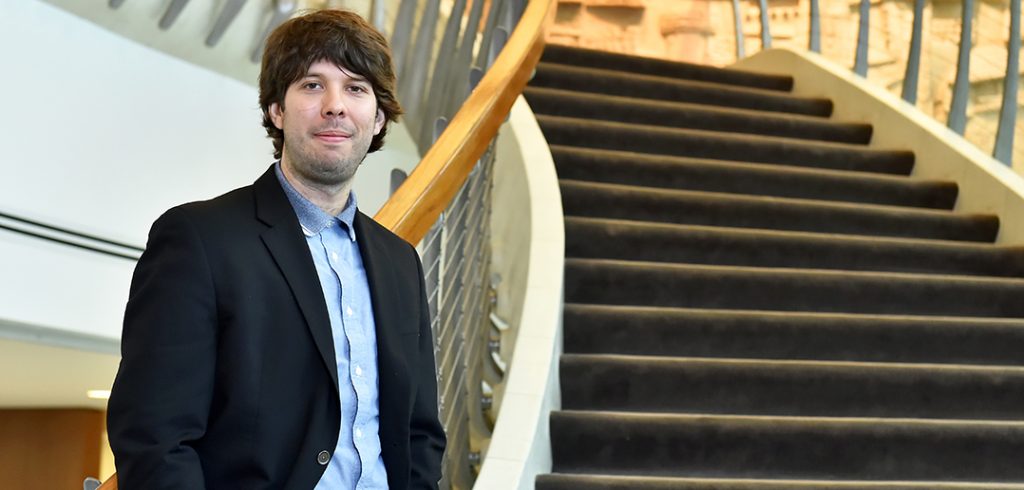He was getting through college the same way, until he took a course on cognitive behavior. There, he began to explore the possibility that his ADHD might be something more.
Through therapy, Browne realized that his attention deficit coupled with social anxiety placed him on the autism spectrum, and that he had been misdiagnosed earlier.
“ADHD is connected to attention domains, but in my case I literally didn’t want to talk to my classmates, not because I felt rejected by them, but because I found no motivation to talk to them,” Browne said.
Browne is earning a master’s in social work from the Graduate School of Social Service. He has already begun a career through the Mental Health Association of Westchester as a recovery specialist for people diagnosed or labeled with mental health conditions from across the autism spectrum. He works at the Sterling Community Health Center in White Plains, New York.
Browne said that his early lack of interest in speaking to his classmates affected his studies, and that any disruption of routine or habit became a distraction. Through therapy, he began to identify symptoms and develop strategies to address the issues.“Part of me is very glad for the degree of independence I had in college so that I could figure it out, but I had some very difficult years before that,” he said. “I had to ‘study’ what some kids just ‘do.’”
In his work with autistic clients, he said he sees symptoms that can be very extreme, like repeating a sentence or phrase until it’s said perfectly. Often he recognizes such symptoms in himself.
“I can relate to those folks; I get where a lot of that’s coming from,” he said. “But once I went through treatment I recognized my own dysfunctional thoughts. Now I look for alternatives that push me out of comfort zones that I used to be confined to.”
While Browne says his diagnosis is more nuanced than some of the cases he encounters at work, he has publicly embraced the autism moniker as a way to fight the misperceptions of mental illnesses in general.
“Autism is classified as a developmental disorder, though many who have it don’t love the label because they say labels help others pigeonhole them,” he said. “But I like the label because it explains my quirkiness and because I’ve learned not to be held back by my symptoms.”
Unfortunately, he said, “there’s a profound fear of people with these disorders, and society treats them with suspicion. I see the role of any social worker as working to dispel that fear.”

